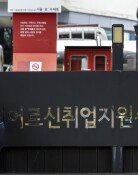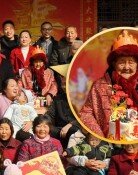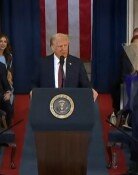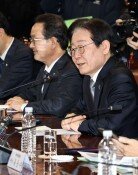[Editorial] School Issues Can Be Solved With Current Law
[Editorial] School Issues Can Be Solved With Current Law
Posted January. 09, 2006 03:16,
The Korean Private Middle and High School Foundation Council withdrew its refusal to accept assigned freshmen yesterday. In terms of protecting the right of student to study, it is very fortunate. However, it is difficult to see that the ripples caused by the revision of Private School Bill have all been solved.
In particular, the Roh Moo-hyun administrations stance of nearly threatening to completely neutralize the opposition of private schools to the revision of the bill will over and over be a matter of hot controversy. Last week, when five private schools in Jeju-do announced they would refuse accepting new students, Cheong Wa Dae called it, A direct challenge to constitutional order, and ordered full-scale investigations on private school corruption. A handful of government ministries including the Ministry of Education and Human Resources Development, which has auditing power over private schools, as well as the Ministry of Justice, Ministry of Government Administration and Home Affairs, and even the prosecution were fully mobilized.
Such a response from the government is not very different from methods used by past authoritarian governments. The actions by the ruling party that turned a deaf ear toward the opposition of the largest opposition party and pushed for the revision of the law, and Cheong Wa Dae, which attempted to completely block the opposition of private schools and religious organizations, are far from the actions of a democratic regime. Such an ultra-hard line stance is too different from the governments position in other education issues.
Not long ago, the Korean Teachers & Educational Worker`s Union (KTU) collectively engaged in protest demonstrations opposing teacher evaluation and produced Anti-Globalization Videos, which challenged the students rights to learn as well as the political neutrality of education. But Cheong Wa Dae only offered a lukewarm response.
At the government policy promotion website: Government Press Releases, President Roh himself commented on the article titled Teachers Open to Evaluation Make Competent Schools, saying, I left here learning something.
During the 2003 controversy regarding NEIS, when teachers protested the education network and caused setbacks in school management, the government showed leniency by merely slapping the wrists of KTU teachers who participated in the protests.
Different from such issues, the atmosphere in the ruling camp is not to allow any dissenting opinions on the revised Private School Bill. Yoo Jay-kun, the new chairman of the ruling Uri Party, made comments hinting at a second revision of the Private School Bill, but took them back the next day. The justification for pushing for the revision was to uproot corruption in private schools, but by having Cheong Wa Dae order an investigation into alleged private school corruption even before the bill was enacted, it admitted that private school corruption can be legally solved with existing current laws. I urge once again to thoroughly monitor corruption in private schools with existing laws before enacting the revised bill on July 1, revising it again, and avoid another clash.







